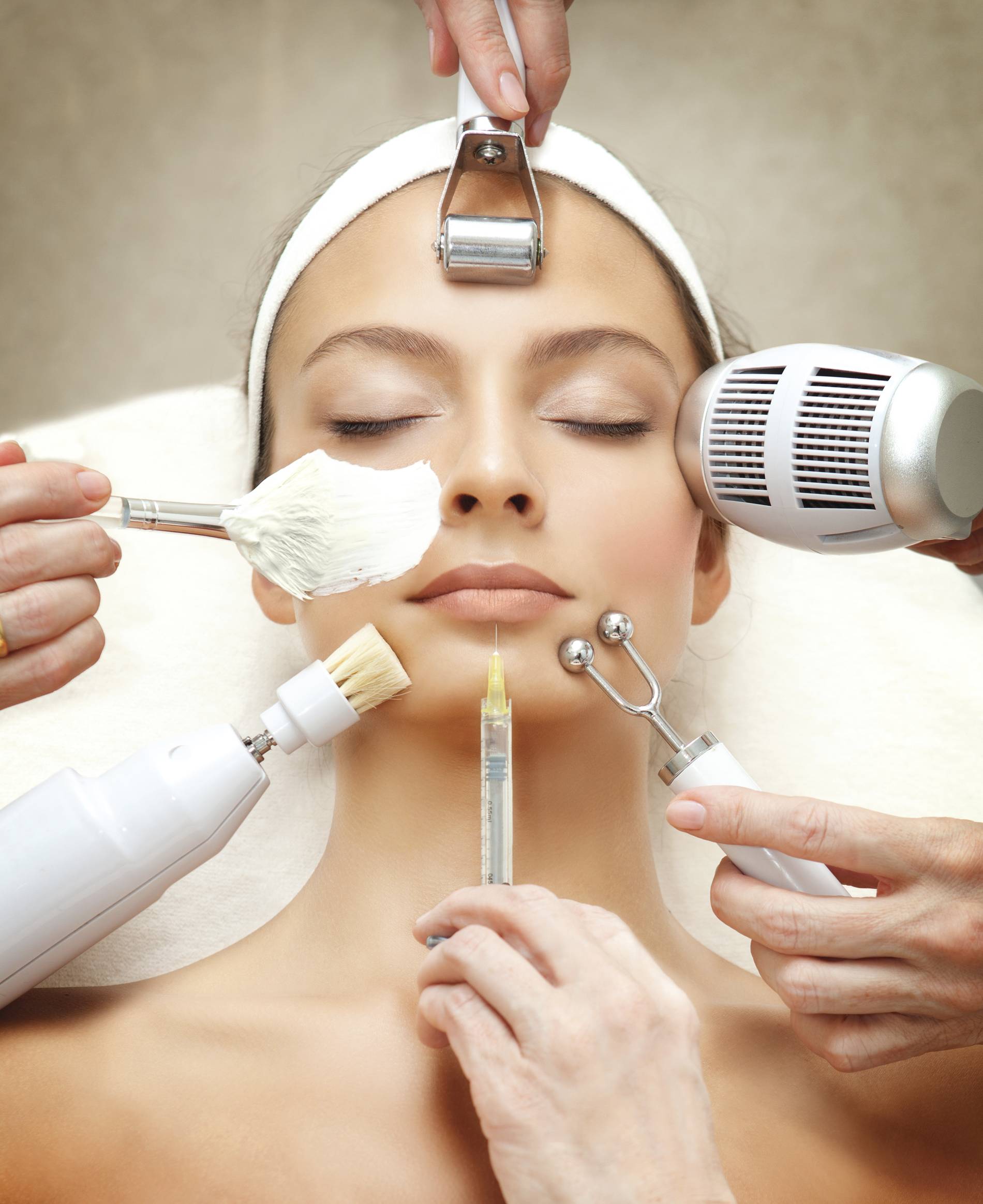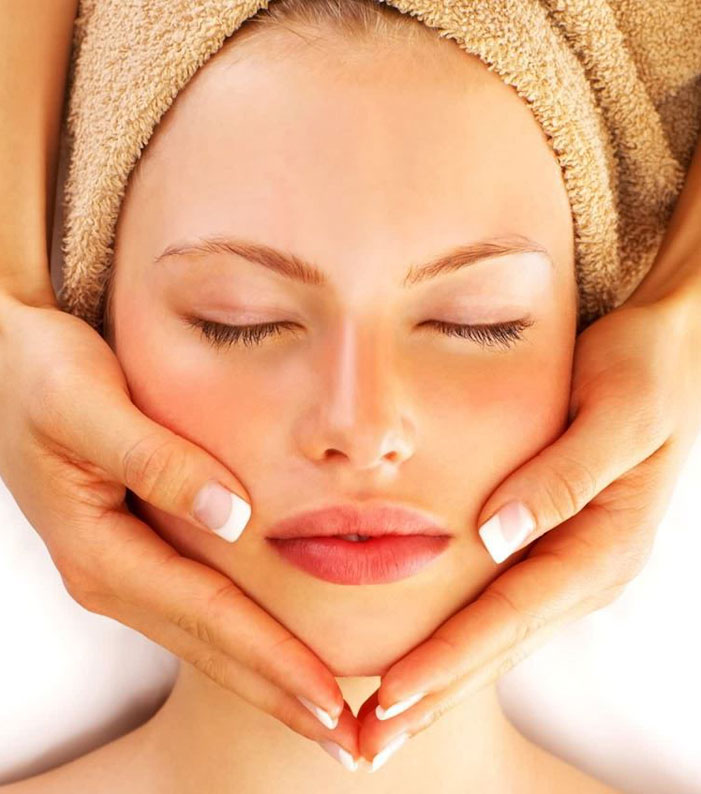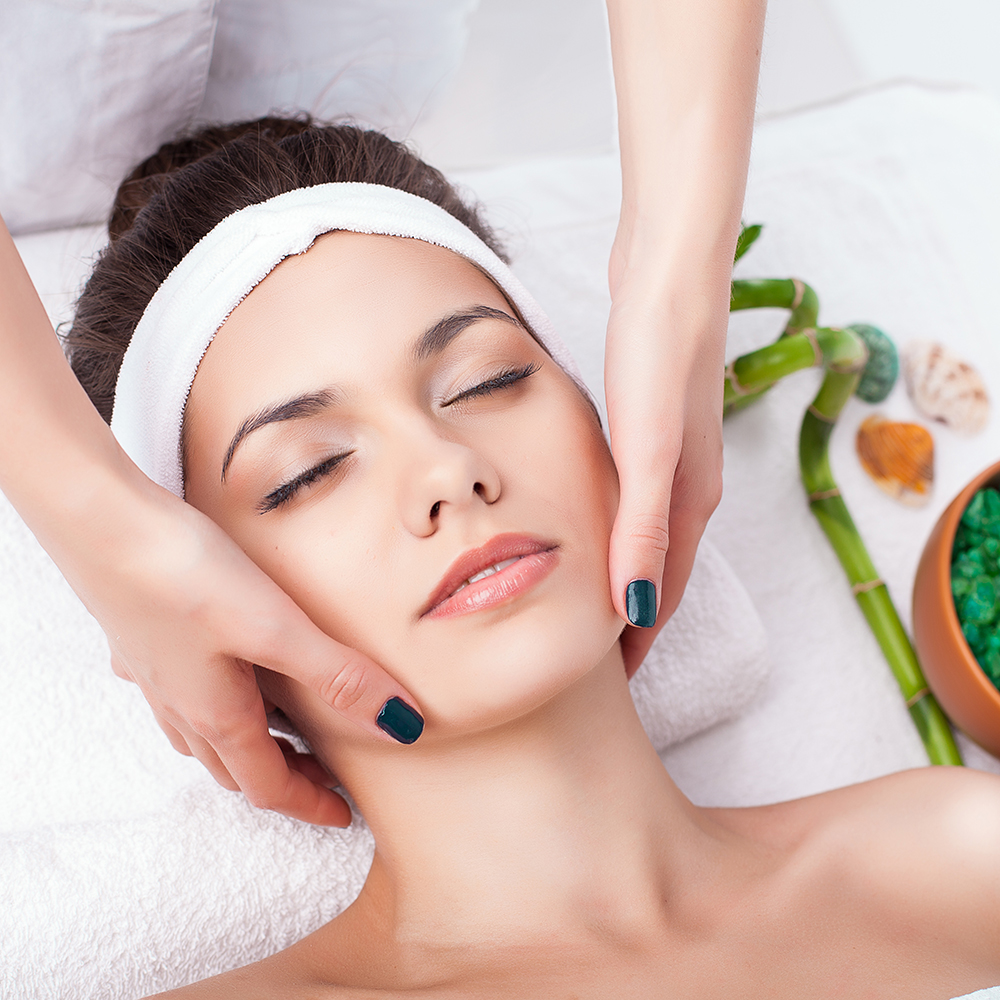Facial Abuse Twitter - Online Communities And Content Concerns
When you hear the word "facial," you probably think about a relaxing trip to a spa, right? It's that nice skin treatment that helps clean your face, puts moisture back, and takes away dead skin cells. These treatments are often made just for your skin, whether it's dry, prone to breakouts, or just needs a little pick-me-up. You might even do one at home, perhaps with a gentle wash, a scrub to make your skin smooth, and then a bit of steam to open things up. It’s a way to help your skin feel good and look its best, so you can feel more comfortable in your own skin.
However, language, like so many things, can have different sides, can't it? A single word, you know, sometimes takes on a whole other meaning, especially when it moves into the online world. What starts as something quite ordinary, a skin care routine, for example, might get linked to something completely different in certain digital corners. This is where things get a bit more involved, as a matter of fact, particularly when we start talking about terms like "facial abuse twitter" and the kinds of groups that form around them.
It turns out that the phrase "facial abuse" isn't about hurting someone's face in the way you might first think, or about bad skin care practices, for that matter. Instead, it points to certain kinds of online communities, often on platforms like Reddit or perhaps even Twitter, where specific types of content are shared and talked about. These groups, you know, bring up quite a few worries, from how content is shared without permission to much more serious issues like abuse and online safety. So, it's pretty important to look at what these communities are, what they share, and why they cause so much concern for people who care about how we all act online.
- Attorney Andi Dorfman
- Are Elizabeth And Sue The Same Person
- 3 Stelliums In Birth Chart
- Marie Osmond With Short Hair
- Kardashian Step Dad
Table of Contents
- What is a Facial Anyway?
- How Do Facials Help Your Skin?
- Are All "Facials" About Skin Care?
- What is the "facial abuse twitter" Community?
- Why Do These Communities Spark Concerns?
- Who is Keeping an Eye on Online Content?
- What Does "Unwanted Facial" Mean in These Spaces?
- How Can We Approach Online Safety?
What is a Facial Anyway?
So, when we talk about a facial in its most common sense, we're really discussing a kind of skin treatment, a way to give your face some care. It’s a process that usually involves cleaning the skin, adding moisture, and gently removing old skin cells. There are, you know, quite a few different parts that can be put into a facial, all made to fit what your skin needs. For example, some might include steaming, which helps to open up your pores. Others might use various creams, special lotions, or even face coverings that feel nice. It’s all about making your skin feel refreshed and look its very best.
Before you book any sort of skin treatment, it's a good idea to figure out what kind of facial would work best for your skin. Is your skin, perhaps, a bit dry? Do you get breakouts often? Knowing what your skin typically does helps you pick the right kind of care. You can even do a facial right at home, which is pretty convenient. You might start with a soft cleanser and a scrub that helps get rid of dull, old skin. Then, a short steam treatment, say for about five minutes, can really help prepare your skin for the next steps. It's a rather simple way to keep your skin feeling good.
How Do Facials Help Your Skin?
Facials, in their traditional form, actually offer a lot of good things for your skin. They can help with dryness, which is a common problem for many people, making your skin feel much more comfortable. If your skin feels a bit tight or looks parched, these treatments can help put back the moisture it needs, making it look fuller and more lively. They also, you know, can help calm down skin that's feeling irritated or red. For those who deal with acne, facials can be a helpful part of a plan to get clearer skin. They can also work on those darker spots that sometimes show up on your skin, making things look more even.
- Brad Pitt Buzz Cut Hairstyle
- Rod Stewart Last Tour
- Airplane Crash On Christmas Day
- Did Mark Wahlberg Shave His Head For Flight Risk
- Prize For Voice Winner
It’s also true that these kinds of skin treatments can help slow down some of the usual signs of getting older, making your skin appear smoother. If your skin feels dry, a good facial can give it a plump look, which is pretty nice. And for those struggling with breakouts, facials can certainly help clear things up. There are, for instance, many different kinds of facials out there, so you can pick the one that fits what your skin is going through. Whether you are trying to deal with blemishes or just want to relax, there’s a facial out there for you. Learning about the different types, plus what you can expect from each one, can really help you choose what is right for you.
Are All "Facials" About Skin Care?
Now, as we talked about, words can have different uses, and this is where things get a bit tricky with "facial." While many people think of skin care, some online groups use the word in a way that has nothing to do with beauty treatments. These communities, you know, gather around content that is, shall we say, quite different. It's a completely separate meaning, and it often points to content that many would find quite upsetting or even disturbing. The shift in meaning, in a way, shows how varied and sometimes unexpected online discussions can be.
This other use of "facial" often appears in certain online spaces, like specific forums or social media groups. These are places where people share and talk about content that is, frankly, very sensitive and sometimes raises serious questions about what is right and wrong. It’s a world apart from the calming, skin-improving treatments we first considered. This difference is pretty important to keep in mind, especially when you see phrases like "facial abuse twitter" pop up in discussions. It helps to remember that the same word can mean something completely different depending on the setting, which is just how language works sometimes, apparently.
What is the "facial abuse twitter" Community?
When people talk about the "facial abuse twitter" community, they are referring to online groups where certain kinds of graphic content are shared. These groups, you know, are often found on platforms like Reddit, but the discussions and content can, of course, spread to other places like Twitter or Telegram. For example, there are communities on Reddit, like "facialabuse2" with many thousands of members, where people share videos and pictures. These groups often have rules about not sharing pirated links or the actual names of the people in the content. This is a bit of a complex situation, as a matter of fact, because while they try to control some things, the content itself is often problematic.
It's pretty clear that these communities are not about sharing skin care tips. Instead, they are about a very specific type of content that involves women, often in situations where they are "willing to take a facial but do not seem impressed by" the outcome, as one group description puts it. This phrasing, you know, hints at issues around consent and how people are shown. There are also rules about not linking to models' personal social media accounts, like their Twitter or Instagram, unless the model can prove it's really them posting. This shows a strange mix of privacy concerns within a space that shares very personal content. It's really quite a situation, you know.
Why Do These Communities Spark Concerns?
These kinds of online communities, including those that might be linked to "facial abuse twitter" discussions, raise a lot of worries for many reasons. One big concern is the sharing of content without proper permission, like pirated links. This is a problem because it means people's images or videos are being spread around without their control, which is just not right. There's also the issue of trying to find the names of people in these videos, which can lead to privacy problems and, quite frankly, harassment. It's a bit like trying to find someone's personal details from a public forum, which can be very harmful.
Another very serious worry is the nature of the content itself. While the text refers to "unwanted facial" communities, it also mentions broader issues. For example, some people have reported "deeply disturbing animal and people abuse videos and accounts" that remain online. This suggests that these communities, or the platforms they exist on, might also host content that is truly harmful and goes beyond just the specific "facial" content. It points to a wider problem of online spaces being used to share things that are abusive or violent. This is, you know, a very serious issue that needs a lot of thought.
Who is Keeping an Eye on Online Content?
A big question that comes up with these kinds of communities, especially those dealing with "facial abuse twitter" content, is who is actually watching over what gets posted. People often report content they find upsetting or harmful, but sometimes, it seems like nothing happens. For instance, someone mentioned reporting "99% of the deeply disturbing animal and people abuse videos" on an app like Telegram, but those videos were still there. This makes you wonder, doesn't it, who is really in charge of making sure these rules are followed?
The challenge of policing online content is, frankly, pretty huge. Platforms have rules, of course, but the sheer amount of new content being uploaded all the time makes it really hard to catch everything. It’s a bit like trying to empty an ocean with a bucket, in a way. Even when people try to speak up and act as a voice of reason, it "seldom works in high tension scenarios," as one comment noted. This means that even well-meaning efforts to report or stop harmful content can often be met with resistance or just not be effective enough. It’s a tough problem, to be honest.
What Does "Unwanted Facial" Mean in These Spaces?
The term "unwanted facial," as it appears in these online communities, points to a very troubling aspect of the content being shared. It refers to situations where women might be shown taking part in a "facial" but appear to be "not impressed by" it. This phrasing, you know, raises serious questions about whether the people involved truly gave their full and free permission for the act itself or for the content to be shared. It touches on the very real issue of consent, which is absolutely vital in any interaction, especially when it involves someone's body or image.
When content like this is shared, it can, frankly, cross a line into exploitation or even abuse. The text mentions that some individuals have "endured mental and emotional abuse and sexual abuse resulting in bodily harm," and have been "subjected to multiple sexual assaults/rapes." While these are very serious statements and not directly linked to every "unwanted facial" piece of content, they highlight the broader dangers that can exist in online spaces where consent is unclear or ignored. It's a stark reminder that what happens online can have very real and painful effects on people's lives. This is, you know, a very sensitive area.
How Can We Approach Online Safety?
Given the issues that come up with communities like "facial abuse twitter" and similar groups, thinking about online safety becomes really important. It’s about more than just avoiding bad links; it’s about understanding the kinds of content that exist and how they can affect people. For individuals, being careful about what you look at and what you share is a pretty good start. It’s also about knowing how to report content that seems wrong or harmful. Even if it feels like reports don't always lead to immediate action, making those reports is still a way to try and make things better.
For platforms themselves, the challenge is to do a better job of policing their spaces. This means having clearer rules, stronger ways to take down harmful content, and perhaps, you know, more people to review reports. It’s a big job, and it needs constant effort. Ultimately, creating safer online spaces is something that everyone plays a part in, from the people who build the platforms to those who use them every day. It's about trying to make the internet a place where everyone feels a bit more secure and respected, which is, you know, a goal worth working towards.
- Halloween Costume Of Kim Kardashian
- What Happened To Brett Gardners 14 Year Old Son
- Nick Jessica Simpson Wedding
- Komodo Dragon In Florida
- 3 Stelliums In Birth Chart

Six Philadelphia Salons for a Restorative Facial

Angela's Signature Facial Skin Care Treatment | Nice Skin Beverly Hills

4 Phases Facial Treatment - the Dominican Republic